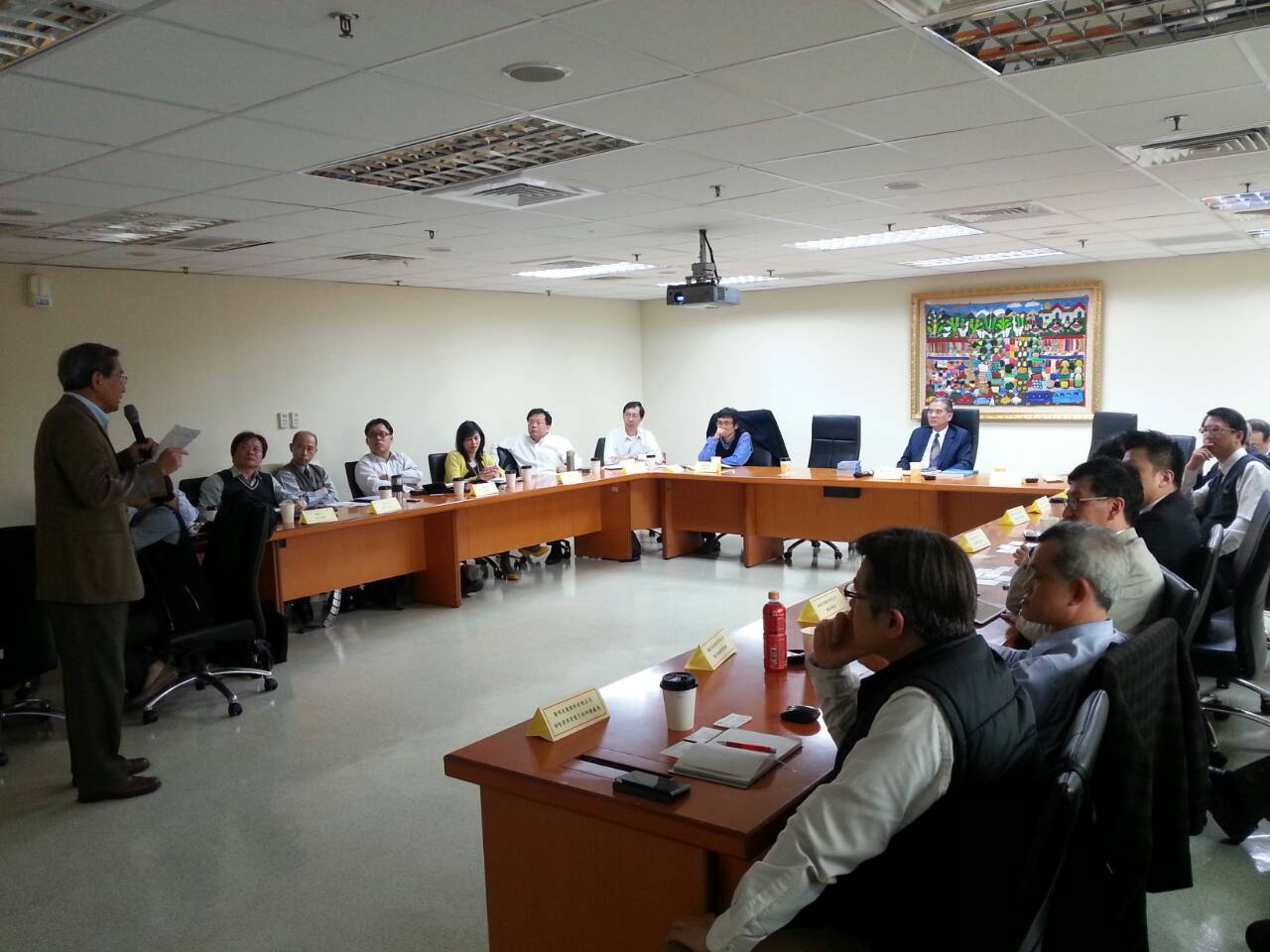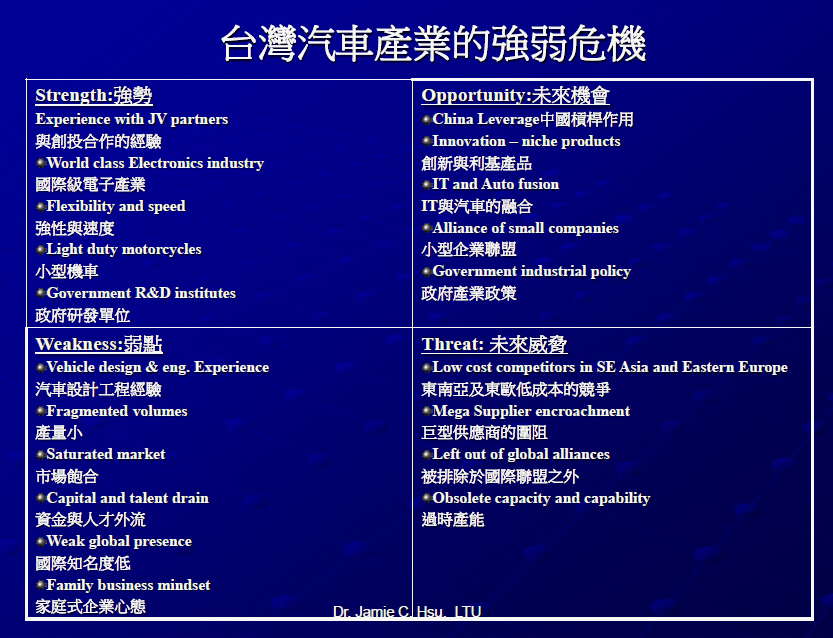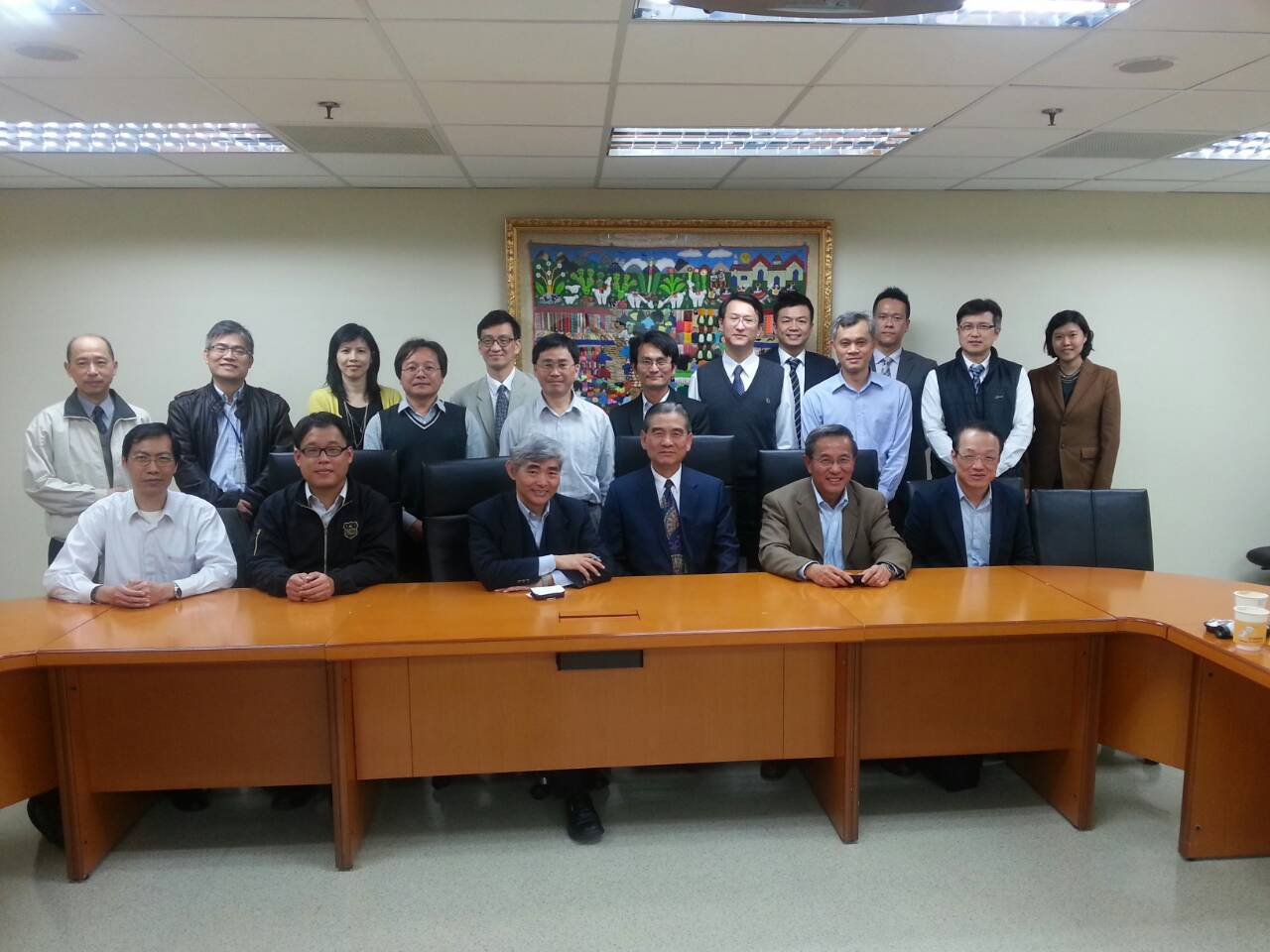Industry Expert Urges Local Auto-parts Makers to Market
2014/03/26 | By Quincy LiangBy QUINCY LIANG
To help Taiwanese companies learn more about the North American automotive market, and about the supply chains and business thinking of major automakers there, the Taiwan Telematics Industry Alliance (TTIA) recently invited Jamie Hsu, senior consultant to the Ministry of Economic Affairs (MOEA) and former executive director of technology management for General Motors (GM), to share his experiences with its members.
"One Taiwan as a Company"
Hsu proposed the "One Taiwan As a Company" concept to representatives from local companies trying to tap into North American automotive supply chains, saying that all local companies should join together to show off their integrated strength at major global automotive trade shows. Citing the SAE World Congress & Exhibition as an example, he suggested that Taiwanese exhibitors organize themselves into a collective team to promote the island's industry cluster advantages and win greater exposure, ultimately bringing benefit to the individual companies involved.
The automotive electronics industry, Hsu commented, offers many opportunities for higher-value-added products. However, he stressed, Taiwanese makers should pay more attention to the needs of global automakers and their future development directions, so as to facilitate the working out of a roadmap for strengthening their technical capabilities.

In fact, Hsu continued, all automakers expect the same thing: for suppliers to solve their problems with total solutions. So, he suggested, Taiwanese companies should first understand automakers' "pains" instead of talking about products. For example, consumers like in-car infotainment systems, but such systems may cause driver distraction; so a good supplier has to first know where the problem lies, to have the ability to solve the problem and simplify the system, and to provide total solutions. Hsu stressed that he also hopes that the governmental, academic, and industrial sectors can all work together in jointly mapping out a strategic direction for future collaboration.
Paul Chou, secretary general of TTIA, pointed out that Hsu's "One Taiwan as a Company" vision conforms totally to the TTIA's established policy direction. In 2013, he added, the TTIA integrated the expertise and strengths of Taiwanese telematics companies in the publication of the ITS-Telematics-Automotive Industry Guide, featuring total solutions for global buyers; this year, the alliance will update the Guide's contents and product specifications.
In the future, Chou said, the TTIA will help local telematics-related makers tap into different global market segments by setting up special task forces (STFs), each of which will choose a member company as leader and all of which will work together to form big-scale integration. This kind of development roadmap is very similar to Hsu's suggestion that local auto-parts makers form strategic alliances that will collectively strive to tap into targeted niche market segments.

Experience Sharing
Local companies also shared their experiences in successfully tapping into the supply chains of global automakers using different methods, such as partnerships with companies in the targeted markets. Some companies said that they first set up Intelligent Bus standards in Taiwan and then promoted them in the international market. Others urged the TTIA to coordinate the establishment of strategic telematics alliances that can jointly provide total solutions to North American automakers.

The development of the telematics industry got started later in Taiwan than in industrially advanced nations, so Taiwan has to find its own way for the effective development of the industry. The Ministry of Science and Technology under Taiwan's Executive Yuan (Cabinet) begin to study the proper direction for development of the telematics industry on the island only five or six years ago to take advantage of the island's solid foundation in the information and communications technology (ICT) industry. Since then, Chou commented, telematics has joined green energy, IC chips, digital convergence, LEDs, photovoltaics (PV), biotechnology, and pharmaceuticals as a strategic industry slated for priority development.




